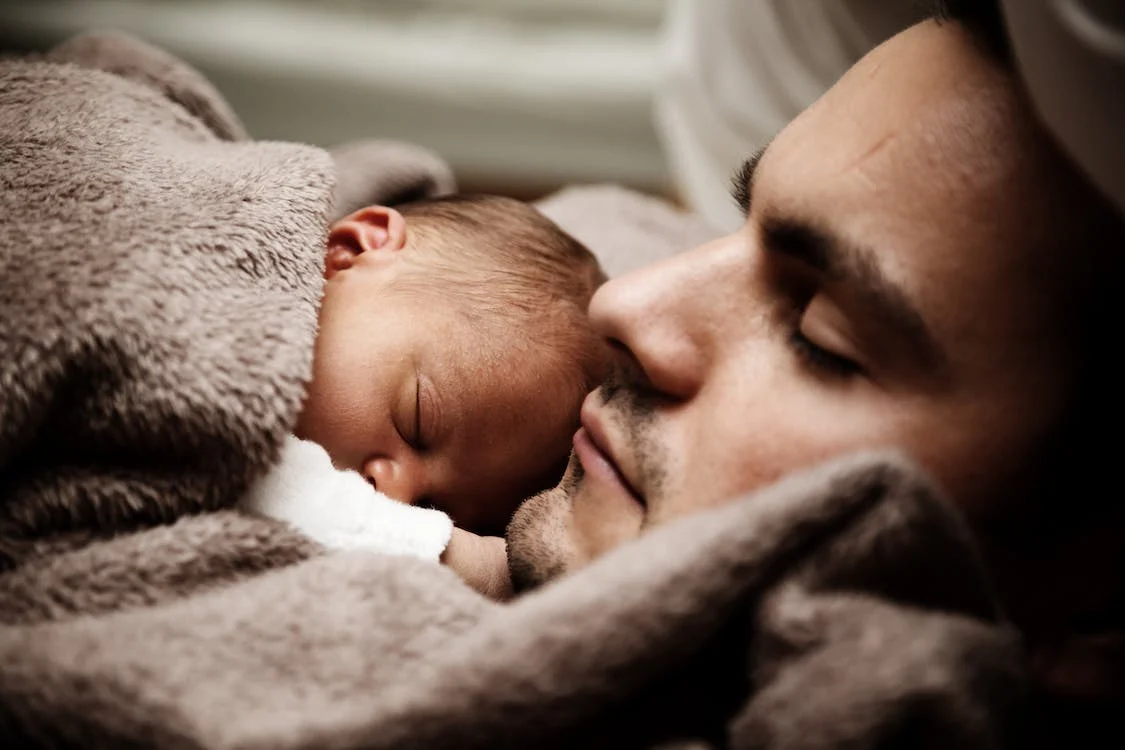By Sleep and Wellness Clinic — Baby Sleep Consultants



You’re up at 2 AM again, pacing the hallway with a baby who seems wide awake and entirely uninterested in going back to sleep. There’s a teething toy on the floor, a bottle that was rejected fifteen minutes ago, and a look of desperation on your face as you whisper to yourself, "Is this teething... or have we entered a no-sleep zone?"
You’re not alone. We talk to parents every day who are trying to decode the mysterious world of baby sleep, and "teething" is often the prime suspect. But the truth? It’s not always the reason behind every short nap or midnight meltdown.
As professional baby sleep consultants, we’ve seen it all—teething, regressions, growth spurts, you name it. And we’re here to break it down for you.
Teething usually starts somewhere between 4 and 8 months of age, though some babies like to break the mold and cut their first tooth as late as 12 to 14 months. There's a wide range of "normal," and it has nothing to do with how strong, smart, or advanced your baby is. It’s just biology doing its thing on its own timeline.
The process goes a little something like this:
And yes, it can affect sleep. But not always the way you think.
Let’s start with what is a sign of teething:
Increased chewing/biting on everything
Irritability or fussiness that’s hard to soothe
Red or swollen gums
Excess drooling
Refusal to eat (especially bottles or solids)
Sleep disruption (short naps, more frequent wake-ups)
Sound familiar? You may be seeing a few of these at once, or your baby may have just one or two. Like all things baby-related, it’s not a one-size-fits-all scenario.
However, here’s what isn’t necessarily teething:
Those symptoms are often blamed on teething, but medical professionals say they’re usually related to something else, like a virus or infection. If your baby has these symptoms, it’s worth a call to your pediatrician.
Now here’s where things get a little trickier.
Both teething and sleep regressions can result in more night wakings and short naps. But how do you tell the difference?
Teething:
Sleep Regression:
If it feels like your baby has entered a whole new phase of sleep
struggles overnight, it could be teething. But if they suddenly need
you more throughout the day and night, are practicing new skills in
their crib, and bedtime has become a marathon, you may be in a
regression.
And that’s totally normal.
In most cases, babies in India start teething anywhere between 4 to 10 months of age. Some little ones proudly show off their first tooth as early as 4 months, while others may still be all gums even after their first birthday—and that’s perfectly normal. Every baby follows their own timeline, so there’s no need to panic if your neighbour’s child is flashing a full set of chompers while yours is still drooling on teething toys.
Here’s the general order in which baby teeth tend to appear:
The entire process usually wraps up by the time your child is about 2
to 3 years old. That said, it’s usually those early teeth—the first
few—that cause the most sleep disruptions.
Interestingly, toddlers tend to handle teething a bit better than
infants. Maybe it’s because their mouths are bigger, they’re used to
the sensation by then, or they can finally say things like “tooth
hurts.” Whatever the reason, it’s a small win to look forward to!
When babies are teething, lying flat can make the discomfort worse.
That extra pressure on swollen gums can make it harder to fall back to
sleep between cycles.
If your baby is struggling with sleep due to teething, here are some
simple and effective ways to help:
Soothing Teething Pain:
Here’s where baby sleep training principles really help. Teething can throw off even a great sleeper. But a few small adjustments to naps and bedtime can prevent overtiredness, which only makes things worse.
Put baby down a little earlier:
5–15 minutes before their usual nap or bedtime
Watch for sleepy cues:
Eye rubbing, slowing down, zoning out
Offer help when needed:
If a nap gets cut short, give them a chance to settle, then help
them finish with rocking or contact nap if needed
Move bedtime earlier if naps were rough:
15–30 minutes can make a big difference
If your baby already knows how to fall asleep independently, they’ll likely bounce back quickly. If they rely on a lot of support (feeding, rocking, holding), teething and regressions may hit harder. That’s where gradual baby sleep training can make life easier—for everyone involved.
No monster spray
Teething is just one of many reasons babies wake up at night. Other common causes?
If your baby’s sleep is unpredictable and you’re feeling overwhelmed trying to fix it solo, it may be time to bring in a baby sleep consultant. At Sleep and Wellness Clinic, we specialize in helping parents understand what’s really causing sleep struggles—and how to solve them in a way that works for your unique child.
No rigid rules. No cookie-cutter plans. Just sleep strategies that make sense for your baby and your family.
With a little support, some chilled teethers, and the right sleep
plan, you and your baby can ride out these tough
nights and get back to the kind of rest that leaves everyone feeling
human.
Want help figuring out whether it’s teething, a regression, or
something else entirely?
Let’s talk. We offer free discovery calls to guide you in the right
direction, and if you decide to work with us,
we’ll create a custom sleep plan that meets your baby where they
are—and helps the whole family rest easier.

Why Your Baby Is Waking at 5 AM – Advice from a Pediatric Sleep Specialist
If you're a parent waking up before the sun because your baby is suddenly bright-eyed and active at 5 AM, ...
Read More
Nightmares vs. Night Terrors: What’s Waking Up Your Child (And You)?
Written by your friendly Child Sleep Specialist who's also had many 3 a.m. wake-up calls ...
Read More